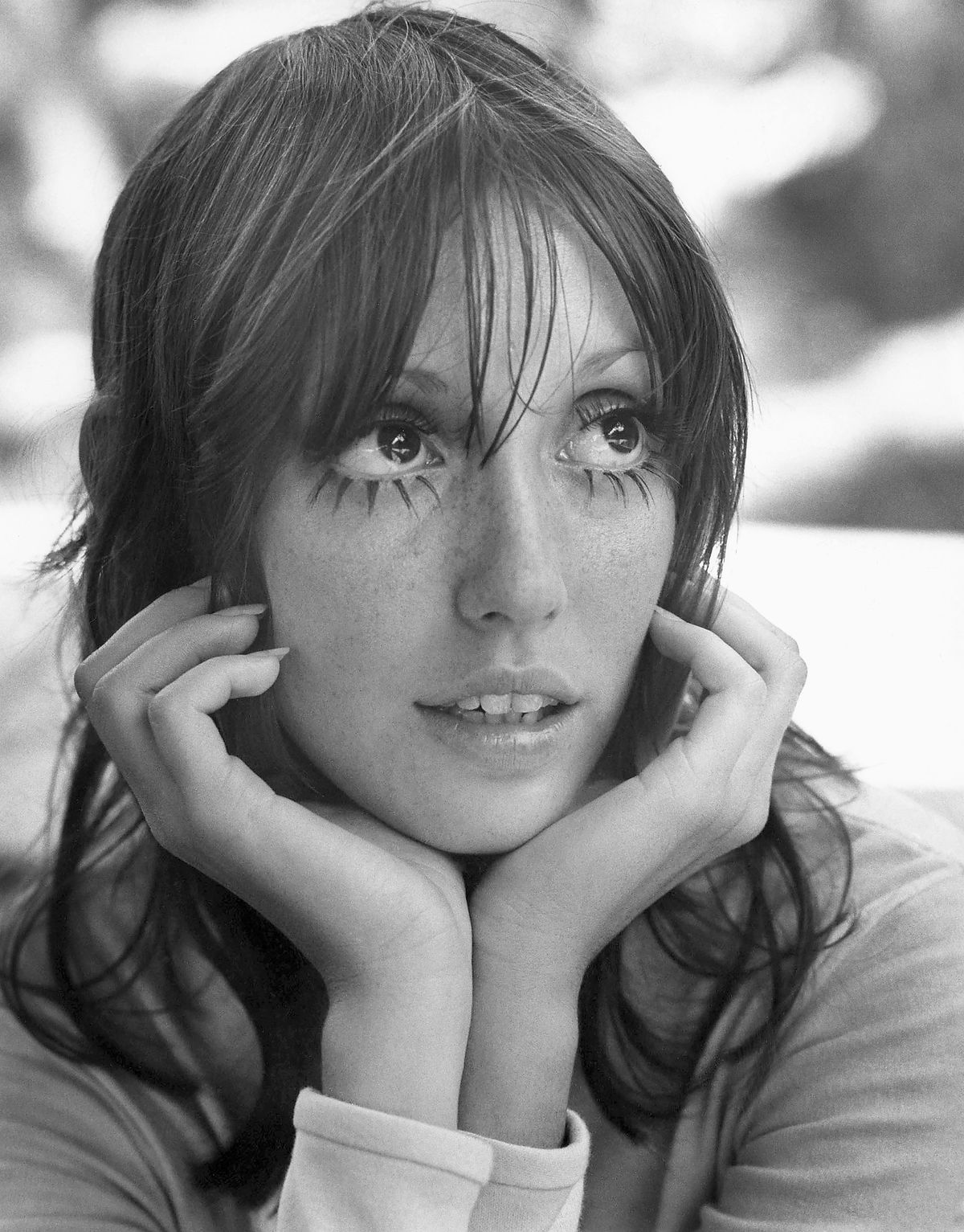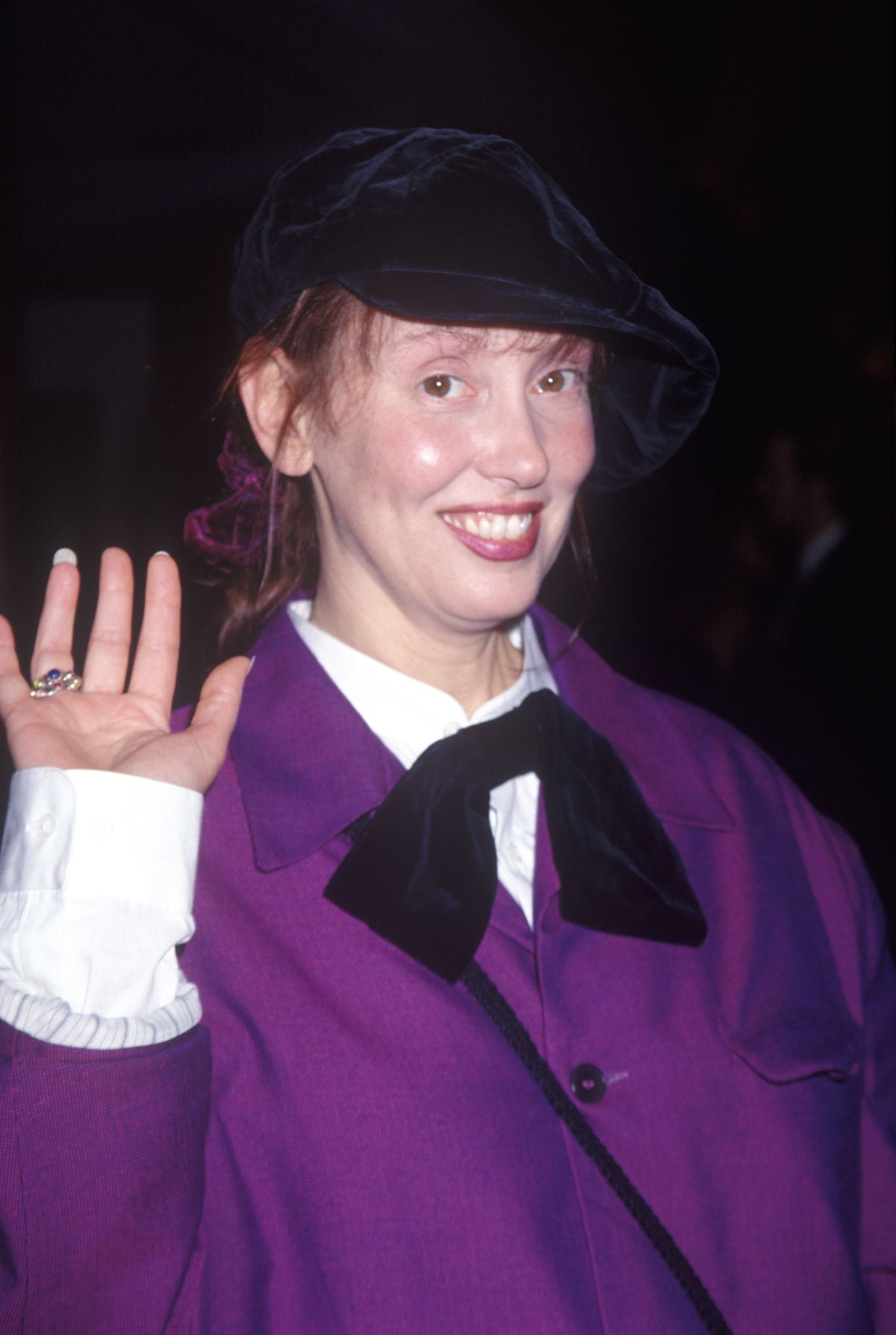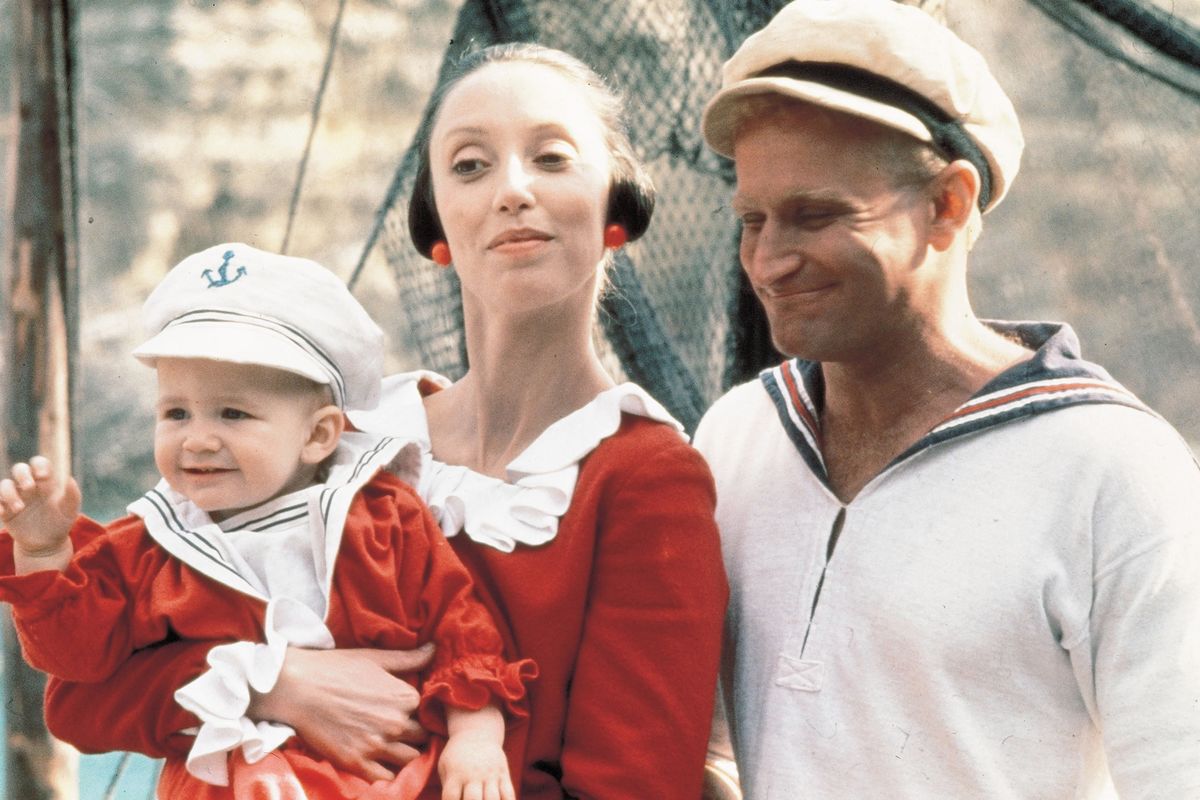Shelley Duvall, star of ‘The Shining’ and ‘Nashville,’ dies at 75
Shelley Duvall attends the Cable Ace Awards in Los Angeles in 1995. ( (Kathy Hutchins/ZUMA Press Wire/TNS)
Shelley Duvall, whose lithesome features and quirky screen personality made her one of the biggest film stars of the 1970s and early ’80s, appearing in a string of movies by director Robert Altman and, perhaps most memorably, opposite Jack Nicholson in “The Shining,” died Thursday at her home in Blanco, Texas. She was 75.
A family spokesperson said the cause was complications of diabetes.
Duvall wasn’t planning on a film career when she met Altman while he was filming “Brewster McCloud” (1970); she had thrown a party to sell her husband’s artwork, and members of his film crew were in attendance. Taken with her, they introduced her to Altman, a director with his own reputation for oddball movies and offbeat casting. He immediately asked her to join the cast, despite her lack of training.
She said yes – and went on to appear in an unbroken string of five more Altman movies: “McCabe and Mrs. Miller” (1971), “Thieves Like Us” (1974), “Nashville” (1975), “Buffalo Bill and the Indians, or Sitting Bull’s History Lesson” (1976) and “3 Women” (1977). She also starred as Olive Oyl opposite Robin Williams in Altman’s movie “Popeye” (1980).
“I thought, ‘Boy, if it’s this easy, why doesn’t everybody act?’ ” Duvall told The New York Times in April.
Her work with Altman cemented Duvall’s career; with her gossamer frame, toothy smile and soft Southern twang, she was the go-to actress for any role calling for an idiosyncratic ingénue. Fans called her “the Texas Twiggy”; critic Pauline Kael, praising her understated physicality on screen, called her “the female Buster Keaton.”
Duvall dated Paul Simon and Ringo Starr. She hosted “Saturday Night Live” in 1977. Photos of her, often wearing a draping, sheer dress and holding a cigarette almost as long and thin as she was, became an enduring image of 1970s celebrity life.
But it was her appearance as Wendy Torrance in “The Shining” (1980) that, for many viewers, remains her most memorable role. In that movie, she and her husband, Jack (Nicholson), along with their son, Danny (Danny Lloyd), move into a mountainside hotel as caretakers while it is shut down for the winter.
As Jack begins to exhibit signs of madness, Wendy becomes increasingly concerned for her own safety and her son’s, though she seems to remain unaware of the underlying supernatural forces at work on her husband.
Critics initially found her performance overbearing, especially her shrieks as an ax-wielding Nicholson hunts them through the hotel halls. She was nominated for a Razzie Award for worst actress, although Janet Maslin, writing in the Times, praised her Wendy “as an almost freakish cipher, her early banality making her terror all the more extreme.”
Duvall’s role has since been re-evaluated, especially as critics have come to understand the psychological strain of working under the sometimes difficult treatment of the film’s director, Stanley Kubrick.
What struck viewers at the time as a stock portrait of a hysterical woman – Stephen King, who wrote the novel on which the film was based, even called her role “misogynistic” – has come to be seen as a shockingly realistic portrait of a woman trapped in an abusive relationship.
“While Nicholson dials up his familiar manic mode as much as demanded, Shelley Duvall amplifies her neurotic quality to the extreme,” Seongyong Cho wrote for rogerebert.com in 2023. “Her strenuous efforts here in this film deserve more appreciation, especially considering how Kubrick harshly treated her during the shooting.”
The Razzies officially rescinded her nomination in 2022.
It was long rumored that working with Kubrick pushed Duvall over the edge and out of Hollywood. In fact, she told the Times this year, she came to admire him, and in any case she continued to act through the 1980s, including as half of the star-crossed couple Vincent and Pansy, opposite Michael Palin, in Terry Gilliam’s “Time Bandits” (1981), and with Steve Martin in “Roxanne” (1987).
But she also found other pursuits in the film industry besides acting. In 1982, she founded Platypus Productions, which adapted classic children’s stories into hourlong television plays under the anthology title “Faerie Tale Theater.”
She used her extensive connections to fill the casts, including former co-stars such as Williams, Bud Cort and Eric Idle. And, of course, she got Altman to direct an episode.
Later, after founding a different company, Think Entertainment, she produced horror-tinged fare for older children and adults under the title “Nightmare Classics.”
Her work won her newfound praise among viewers and people in the TV industry, at a time when many felt that the expanding world of cable needed higher-quality programming.
“For years I’ve been going to the cable conventions,” Duvall told the Times in 1988, “and the cry I heard was for original programming. I want to help supply it.”
Shelley Alexis Duvall was born on July 7, 1949, in Fort Worth, Texas, and grew up around Houston. Her father, Robert, was a cattle auctioneer turned lawyer, and her mother, Bobbie Ruth (Massengale) Duvall, was a real estate broker. (She is not related to actor Robert Duvall.)
She married Bernard Sampson in 1970; they divorced in 1974. She is survived by her longtime partner, Dan Gilroy, and three younger brothers, Scott, Stewart and Shane.
Duvall grew up a voracious reader, especially of horror classics – including works by Edgar Allan Poe, Henry James and Ambrose Bierce that she would later turn into TV programs for “Nightmare Classics.”
Her aspiration was to go into science, “making great discoveries in food research to help mankind,” she told the Times in 1977. She studied nutrition at South Texas Junior College and sold cosmetics in a department store. She dropped out of school after witnessing a monkey vivisection and decided to find a more pleasant career.
Her husband at the time, Sampson, was an artist, and in 1970 she gave a party at their home in Houston as a way of building interest in his work. Unbeknown to her, Altman and his film crew were in town to film “Brewster McCloud,” and a few of them attended the party.
They returned to the set, effusive about their strange, captivating host.
“When I first met Bob Altman a few days later, he asked me, ‘How’d you like to be in a movie?’ ” she told the Times in 1977. “I said, ‘But I’m not an actress,’ and he said, ‘Yes, you are.’ ”
Her early work with Altman was in supporting roles, including a mail-order bride in “McCabe and Mrs. Miller,” or as part of an ensemble cast, as in “Nashville.” But she received top billing in the enigmatic, critically beloved “3 Women,” over Sissy Spacek and Janice Rule, and won the best actress award at the Cannes International Film Festival for her performance.
By then Altman and Duvall were a well-oiled machine, and he let her write roughly half her dialogue herself.
“He has a great confidence in me,” she said in the 1977 Times interview, “and a trust and respect for me, and he doesn’t put any restrictions on me or intimidate me, and I love him.”
Duvall worked almost exclusively with Altman in the 1970s, save for “Bernice Bobs Her Hair,” a 1976 movie for PBS based on a story by F. Scott Fitzgerald, and a small part in Woody Allen’s “Annie Hall” (1977).
It was her work in “3 Women” that drew the attention of Kubrick, who was beginning to cast “The Shining.”
“I like the way you cry,” she recalled him saying.
Kubrick was a famously exacting director, often forcing dozens of takes for each scene during the making of “The Shining” – including 127 for a scene in which a terrified Wendy holds a baseball bat, ready to confront Jack. Throughout that shooting, Kubrick refused to give her a break for water. That, plus off-screen footage from the making of the film, seemed to reinforce the impression that his treatment of Duvall was borderline abusive.
But whatever Duvall may have felt at the time, she later said she was thankful for Kubrick’s obsessive precision; it was, she said, the only way for her to access the complex horror at the core of Wendy’s character.
“He was very warm and friendly to me,” she told The Hollywood Reporter in 2021.
Though she continued to act through the 1980s, her roles were fewer and less prominent. In addition to well-received films like “Time Bandits” and “Roxanne,” she appeared in “Frankenweenie” (1984), a short film by Tim Burton, and “The Underneath” (1995), a crime thriller by Steven Soderbergh.
In her interview with the Times in April, Duvall attributed her career decline, and her eventual move from Los Angeles to rural Texas, to several causes, including the 1994 Northridge earthquake, which severely damaged her home, and a family health emergency.
But she also discussed the cruel vapidity of Hollywood celebrity, the way supposed friends can suddenly become enemies, and the way women prized for their youthful allure can be unceremoniously discarded as they age.
“How would you feel if people were really nice, and then, suddenly, on a dime,” she said, snapping her fingers, “they turn on you? You would never believe it unless it happens to you. That’s why you get hurt, because you can’t really believe it’s true.”
After several years of living happily outside the limelight, her physical and mental health began to decline. Gilroy, her partner, told the Times that she became paranoid and reclusive, even calling the FBI to ask for protection.
In 2016 she appeared as a guest on “Dr. Phil.” The show was billed as an effort to help her, but she came across as deeply disturbed, her face puffy and her gray hair thin and disheveled. She insisted that Robin Williams, who had died two years before, was alive and “a shape shifter.”
Duvall’s problems were real, but the episode was roundly criticized for showing a person with good and bad days in the worst possible light. Later interviews that Duvall gave to the Times and The Hollywood Reporter offered a more nuanced picture.
And though in recent years Duvall used a wheelchair to get around her house, she appeared in one more film, “The Forest Hills,” released last year. It’s a supporting part in a quirky, independent horror movie, but a fitting role for an actor who never intended to act in the first place.
“I went to Lee Strasberg a few years ago because I’d heard such good things about him, but I went to two lessons and it just wasn’t for me,” she told Andy Warhol for a 1977 cover feature in Interview magazine. “That’s one piece of advice Robert Altman gave me at the very beginning – never take lessons and don’t take yourself seriously.”
This article originally appeared in The New York Times.



